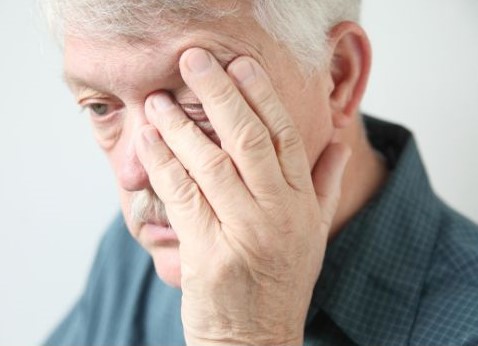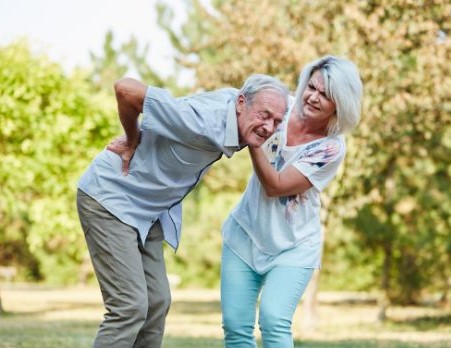*************************************************************

I used to be able toThough I am comparably new to this aging game, I feel one instinctively knows when the declining pep portion of life begins. It’s all about the vocalizations. And the vocalizations accompany every movement…just about. Perhaps more often as one’s lifespan stretches on. It seems those grunts, groans, oofs, wah?s, oys and ohs are essential whenever a burst of spunk is necessary to complete some physical activity or another.
Oy is a particularly useful word in a few different languages. Oy–or oy vey (Yiddish) is the old world equivalent to WTF. It’s much easier to say, being an actual word, and goes nicely with wondering why it’s so difficult these days to get up from the floor. Oy in Spanish means pretty much the same, but when uttered six times in a plaintive wail, one is conveying the painfulness of trying to get up off the floor, knowing damn well you shouldn’t have been down there in the first place. Oy in English (that’s the Queen’s English), when shouted over a bit of distance, means you are trying to get someone’s attention so that they can come and help you up off the floor. See! An amazingly versatile word for the geriatric phase of living. I find myself using the word several times throughout my day conveying every nuance of meaning from three different languages.


Oh, on the other hand is more of a disappointment in oneself, especially when you realize you are not performing those tricky movements such as lifting the roasting pan out of the oven or navigating the lawn mower up the hill in the yard as well as you used to. Oh feels more like what one might say in a moment of discovery. Like Oh, my back or Oh, this ladder is excruciatingly higher than it was last year! Of course, should disaster befall one, Oh may be followed by a resounding Shit! This should not be confused with the exclamation one makes when the credit card bill comes in the mail…that’s just plain old anger. If one is not inclined to swear, (you should probably get used to shouting profanities if you’re getting up there in years) there are other choice words which satisfy the need to vocalize shock, anger or disgust at your own emerging ineptitude. For instance, Wah? might do the trick for those situations of unexpected doings.
Wah? is, of course, the shortened version of What the Hell? and is useful when you are horribly confused by what is happening and are unable to finish the full sentence due to shock. Though I am only in my early late sixties, I find myself using this term often. It’s compatible with realizing how the reach down into the deep freezer is much further south than it was last week. You can combine it with an enthusiastic oy as you unbend your back to bring your head up to its normal position. Ironically, when you decide to save your spine from having to fold in half, and bend your knees instead to reach the pan you stowed in the lower kitchen cupboard, saying Wah? is useful when you find yourself stuck in a low crouch, possibly forever. My advice–take a deep breath, give a loud and determined grunt and power your way to a standing position. Actually, there are a number of ways to safely handle the unintended permanent squat. As the remedy is somewhat circumstantial, multiple vocalizations may be strung together for best results.


If you have never given out an oof, then you have not yet entered the age of general decrepitude. Oof is that utterance you say gently as you breathe out in order to hide from others your lack of vigor. I sputtered my first oof out on the trail when it was necessary to climb up an unruly, large boulder. Generally speaking, oof is handy for actions which used to be considered minor exertions but now need a little extra oomph to perform. Either way, I found I could climb up that rock, but not without more effort than I first thought necessary. Little puffy exhalations peppered with a few oofs is both powering and comforting and are more subtle than grunting when you want to hide the fact that you had to pull out more zip than you did the last time you encountered such an obstacle.
The grunts versus groans controversy can now be settled due to my keen observation of human behavior. A grunt is just below the level of a shout, usually more guttural, executed whenever one’s dignity is as important as one’s get ‘er done attitude. You can’t stay in that recliner forever because, sooner or later, you are going to have to use the bathroom (it’s usually sooner). Bending forward at the waist to initiate the standing process places pressure upon the diaphragm, which allows for the expulsion of air commonly known as grunting. The grunt may be employed whenever one is bent over to tie shoes, pick up trash, mop up spills or pet the dog. It enhances our power to return to the upright position in a way that sounds determined. It should be used whenever there are spectators. If you’ve ever watched the Olympic Games, you may have heard those shot-putters as they twist and hurl! A good grunt tells the world, “I got this!”


I need a momentA groan, on the other hand is pitiful. Contrary to the burst of sound a grunt makes, a groan is a long exhalation with a sobering quality. Groaning is applicable throughout the lifespan–mostly due to hangovers or other impoverished bodily conditions. It does not give one extra strength or energy. It is generally a wordless exclamation of woe. That does not mean it does not have its uses. I go for this vocalization whenever I am unable to get something accomplished using any of the other extra power sounds. It allows me a moment of wallowing, in which I deserve to indulge from time to time. Use it whenever you need that little moment of self pity. Then, please get your shit together and try a few of the options available for gaining some juice to fuel the deed at hand. Be mindful that groaning can be habit forming and so, should be used sparingly.


Keep it movingIf you realize that you have been using any of these vitality-enhancing vocalizations on a regular basis then Welcome to Geezerville. You might be a novice, like me, or you may be an old pro, a master of adaptive physical endurance via a variable vocabularial evolution. And kudos to those of you who are willing to get down on the floor with the assurance that you can and will get back up again. I admire your verve. Now let’s all get out there and do stuff with confidence and exuberance, knowing the language of our grandparents will power us through our favorite activities. Oof, that’s a lot of words about words.
Shine on active elders,
Cheryl




???????????????????? love this!! Oof ????
Those question marks were emojis! 😉
Ha ha ha :D. *scrunch* (wait til you hear my new knee.
I had to read this again….you made me laugh both times – so many noises to express so many aging body parts 🙂
We put them all to good use yesterday!